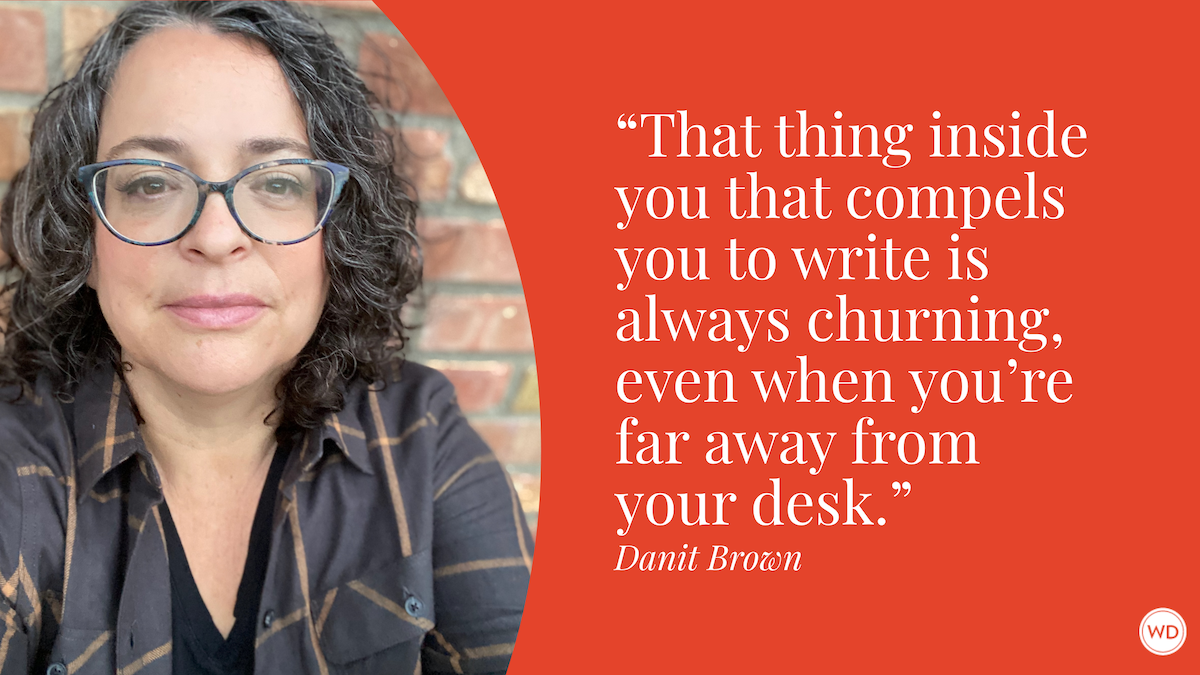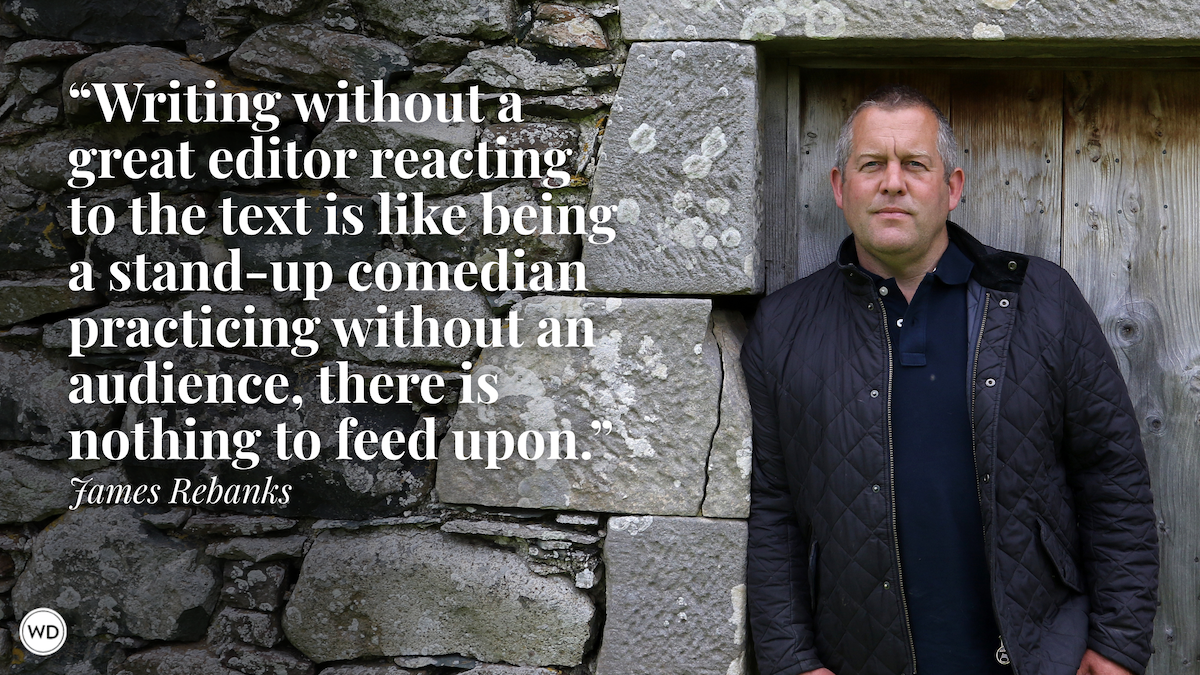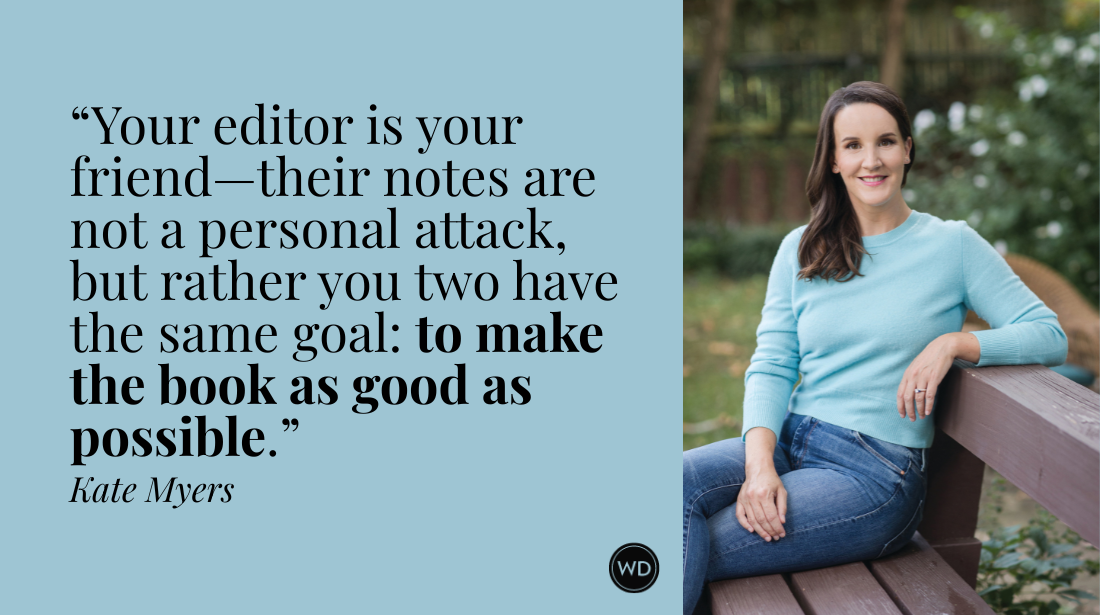Getting Over Guilt of Not Writing
Techniques for changing your mindset about non-writing time from feeling guilty to feeling productive.
[This article previously appeared in the March/April 2025 issue of Writer’s Digest.]
As writers, we tend to be hard on ourselves. If you feel guilty about your writing habits, you’re not alone! It’s easy to overlook small, but significant steps towards your goals if you’re focused on the negative or on comparing yourself to others.
Instead, what if you change your mindset to take into account the growth and progress that is happening every day? It’s important to acknowledge all aspects of the writing process—not just word count or a finished manuscript.
If you want to stop feeling guilty about not writing and cultivate a strong, sustainable creative practice, here are some mindset shifts and actionable ideas.
Redefine productive writing time.
Writing involves more than time spent with a keyboard or pen. Mulling over ideas, doing research, talking with colleagues or friends—these are all just as important as the act of putting your thoughts into words.
Give credit to all the elements that contribute to the final product. Reframing your mindset around what constitutes “writing” can reduce your guilt and increase your satisfaction.
It’s also important to remember that stepping away from your work can actually improve the quality of your writing. Breaks shouldn’t induce guilt. Instead, treat that “off” time as just as valuable as sitting at your desk writing. You need to recharge to be creative and productive. Plus, some of the best inspiration comes from time away, meeting new people, and traveling.
Here are some ideas for breaks that contribute to your productivity:
- Listen to a podcast or audiobook that relates to your writing topic.
- Chat with friends or family about what you’re working on.
- Re-read something you wrote a few years ago (or further back!) and reflect on what you notice. How have you changed in your style or perspective?
- Leave yourself a voice memo about the ideas, questions, and worries you have about your current project. Relisten to it next week or next month to see what changes.
Set realistic and actionable goals.
Failing to meet the goals you set for yourself can have a negative impact on your self-confidence for sure. But are your goals realistic in the first place? It’s important to be real with yourself and realize if your current goals are too ambitious. You might be setting yourself up for failure if your goal is to write 10,000 words each day, rather than the more achievable 1,000.
Having realistic goals makes it possible to balance easy wins with challenging targets to maintain motivation. For example, you can reverse-engineer large goals into manageable daily tasks. If you want to write a 70,000-word book, and you commit to writing 1,000 words on weekdays and Sundays, you can create a clear timeline to complete the project in about three months.
That’s much easier to accomplish than trying to complete the project in seven days by writing 10,000 words per day. And guess what? The quality will be better too. But you have to be realistic about what you can actually do.
There are lots of great accountability and planning resources out there to help you. For example, Written Kitten rewards you with a virtual kitten (or puppy or bunny) for each chunk of writing you do — you can set the word count goal. You can also use the Pomodoro Technique for setting the goal of writing for 25 minutes straight before breaking.
Assess your time management.
In order to set realistic goals, it’s essential to know how long things actually take you to accomplish. That’s why timing your writing sessions is important. Once you understand your personal output rate of words per hour, you can use timing data to set achievable goals and avoid unrealistic expectations.
Aligning your goal-setting with your actual capabilities is a key in establishing a guilt-free writing practice. Plus, you can make more time for your creative projects when you have a clear sense of how long you need.
Rework your writing space.
Tapping into your own personal productivity style will make all the difference. Where you write has a big impact on how you feel about your work. Whether you write at the kitchen table or you have a dedicated office, your space matters. Sometimes a change of scenery can help. If that’s not an option, you can rearrange your current work area. Clear the clutter, move your desk, get a new lamp—play around and see what feels right. Giving your writing area a little novelty can break you out of a rut and change your mindset.
Combat isolation.
Writing can be an isolating endeavor—and isolation can lead to a lack of accountability and motivation. That’s why it’s so important to join writing groups (or form your own!) Checking in with colleagues can be a reality check and a way to gain perspective. Making a community is a way of being a good literary citizen—and the benefits keep on giving.
Co-working and creating writing groups to discuss your work can also be helpful in reminding you that there is no universal timeline for writing. Every author progresses differently. And that’s a good thing! We are each unique and bring a special set of experiences and ideas to our writing—so it’s no wonder that every writer is on their own path.
Chart your progress.
Keeping visual track of your progress can remind you of how far you’ve come. For example, if you have a word count goal each day, make a calendar and give yourself a big check each time you meet it. Seeing all those checks can help remind you that you have a lot to be proud of!
The important thing is to show yourself that each small piece of work adds up to something big and meaningful. That can be a huge source of motivation. It also helps banish guilt when you see how much you’ve already accomplished. So, take stock of everything you’ve already done and make the effort to remind yourself that you are capable.
Have a whole-person perspective.
It’s easy to focus on all the things you aren’t doing and forget about what’s going right. If you feel down on yourself because you wanted to finish a draft and haven’t gotten to it, it’s important to reflect on why before you succumb to negative self-talk.
What has been going on in your life that has prevented you from doing the work you want to do? Every writer is not just a writer—we’re also friends, partners, children, parents, neighbors … the list goes on and on!
Think about yourself as part of a social ecosystem, not just an individual. Who and what has been taking up the time you wanted to spend writing? Maybe you have new responsibilities in your family or at work. Maybe you got into a new hobby that takes more time than you anticipated. It’s OK to prioritize other things, because those things all enrich your writing practice too.
If guilt is something that you struggle with as a writer, know that you’re not alone. Lots of people feel this way, and it doesn’t mean you won’t create the work you’re dreaming about.
Changing up your mindset and your routine can have a big difference in what makes you feel guilty and what you recognize as part of your creative process.
For more productivity tips go to PaulaRizzo.com/listWD.
Paula Rizzo is an Emmy Award-winning television producer, bestselling author of Listful Thinking & Listful Living, media-training coach, speaker, LinkedIn Learning Instructor, host of the live-stream show “Inside Scoop,” and creator of the popular online training Media-Ready Author. Grab Paula’s free guide, 10 Media Questions Every Author Needs to Answer, to create buzz for your book.








